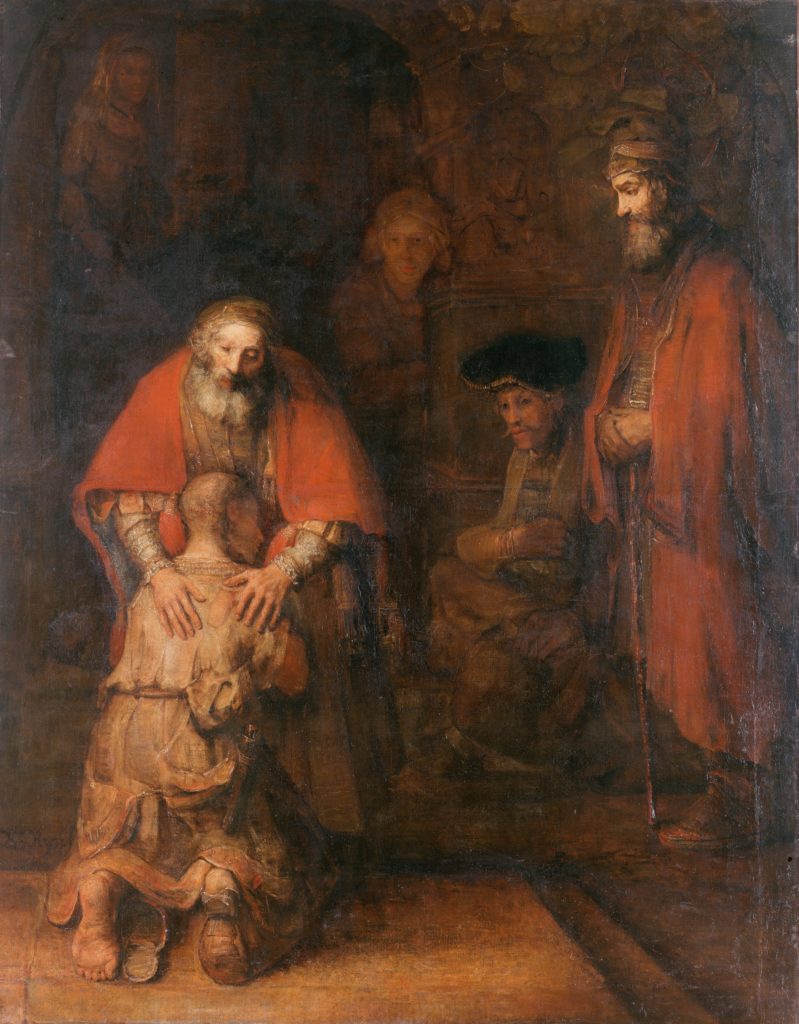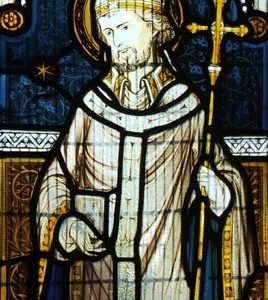My wife brought many great things into our marriage. Among them were a French Press — a necessity, I have discovered, with a one-year old — and a lot of books which helped form her Catholic faith before and after her conversion.
One of those books is The Return of the Prodigal Son: A Story of Homecoming by Father Henri Nouwen. I came across it purely by accident and was immediately taken in by Nouwen’s wonder and intense fascination with Rembrandt’s depiction of The Prodigal Son’s return, which is at the center of the book from Page One.
In an irony that only
God could have created, I found the book a day after telling a friend that I am
not inclined towards art. As I read Nouwen, I realized a number of subtle
lessons about The Prodigal Son story which Nouwen made powerfully clear.
In no particular
order…
The Son’s return travel
Nouwen pointed out
that the Prodigal Son’s return was not one for which he was prepared to receive
open arms and forgiveness. The Prodigal Son was returning cowed and beaten,
viewing himself as less than fully a Son, and worthy of merely being a servant.
Nouwen highlights how this is like so many of us when we go to Confession –
anticipating not open-armed forgiveness, but harshness and condemnation.

In his reflection on Rembrandt’s painting, Nouwen points to the scant clothing and footwear which the Son wore when he was embraced by his father. While he doesn’t discuss it in the book, it hit me like a ton of bricks just how hard the Son’s return journey must have been. He had initially traveled far with many resources and energy. Now, he was returning defeated and poor.
He was starving to death. How difficult this return journey must have been, yet the son made it because he recognized that it was his only chance at physical salvation — literally, staying alive.
I’ve always viewed this as humbleness — the Son recognizing how he had acted, understanding that he had betrayed his father and himself. However, Nouwen maintained that the Son was viewing his father as a being of limited love and compassion.
The story is not clear, but Nouwen’s point nonetheless broadened my perspective that in returning for Salvation and eternal life, our hope must always be in a merciful God — even when the penance and consequences for our sins are painful.
Love of the father for the eldest son
The subtleties of The
Prodigal Son story have slowly become clear to me through the insights of others..
It was a priest’s homily which helped me realize, for example, that the eldest
son was sinful in his judgment and resentment. It was another priest who
pointed out that Christ says the father saw The Prodigal Son from a long way
off – meaning, he was looking for and seeking his son in a very
pro-active, loving way.
Nouwen exposed the
father’s love in a new way. I’ve always seen the father as begging his eldest
son to join the celebration – in a submissive, desperate way to bring the
family together. However, Nouwen made clear that the father is showing his
intense love for his eldest son by leaving the celebration of his younger
son’s return to ask the eldest son to join the celebration.
To put it another way:
the father’s intense love for the youngest son is showed in fully embracing the
Son with a hug, the finest clothing and shoes, and the best party the household
had perhaps ever seen. Yet the father did not limit himself to just that
celebration – when he heard that his eldest son did not want to join, he took
it upon himself to seek to open the eldest son’s heart and soul.
Christ did this often
in His Ministry, welcoming the adulterer while gently and firmly calling out
the Pharisees for their hypocrisy. The love is not diminished or submissive,
but simply expanded and exponential.
Landowner rewarding those who wanted to work
Nouwen’s book quotes a
lot of Scripture outside of The Prodigal Son story. One is the landowner
parable in Matthew 20:1-16 where the landowner hires the workers throughout the day and
rewards them equally. (Nouwen’s reflection on the landowner’s generosity are
quoted at length online here
for context.)
Like the lessons of
The Prodigal Son parable, the lessons of the landowner parable have only come
to me slowly over time. I’ve long struggled with my acceptance of the potential
for God’s equal Grace for those who come to Him late in life or early…and my
distress that the landowner would use material wealth the same way. While he
doesn’t address it in his book, and the point has been made to me before, it
took reading Nouwen for me to fully see that it was the desire
to work, not the work itself, which was the cause of the landowner’s
generosity.
To put it another way: One may desire to work hard for God in certain ways. However, He may call us to wait and be still. That’s still in line with God’s Will, which is really what’s most important.
✠
Author’s note: Coincidentally, two days before I wrote this piece, Hot Air’s Ed Morrissey’s weekly reflection touched on the father’s rebuke to the eldest son. Ed also noted something which Nouwen addressed in the book — that the youngest son’s desire to take his father’s assets while the father was still alive was, in the culture of that time, a clear desire to wish his father dead. I don’t know if Ed read Nouwen, but be sure to read his piece for further insights from The Prodigal Son parable.












